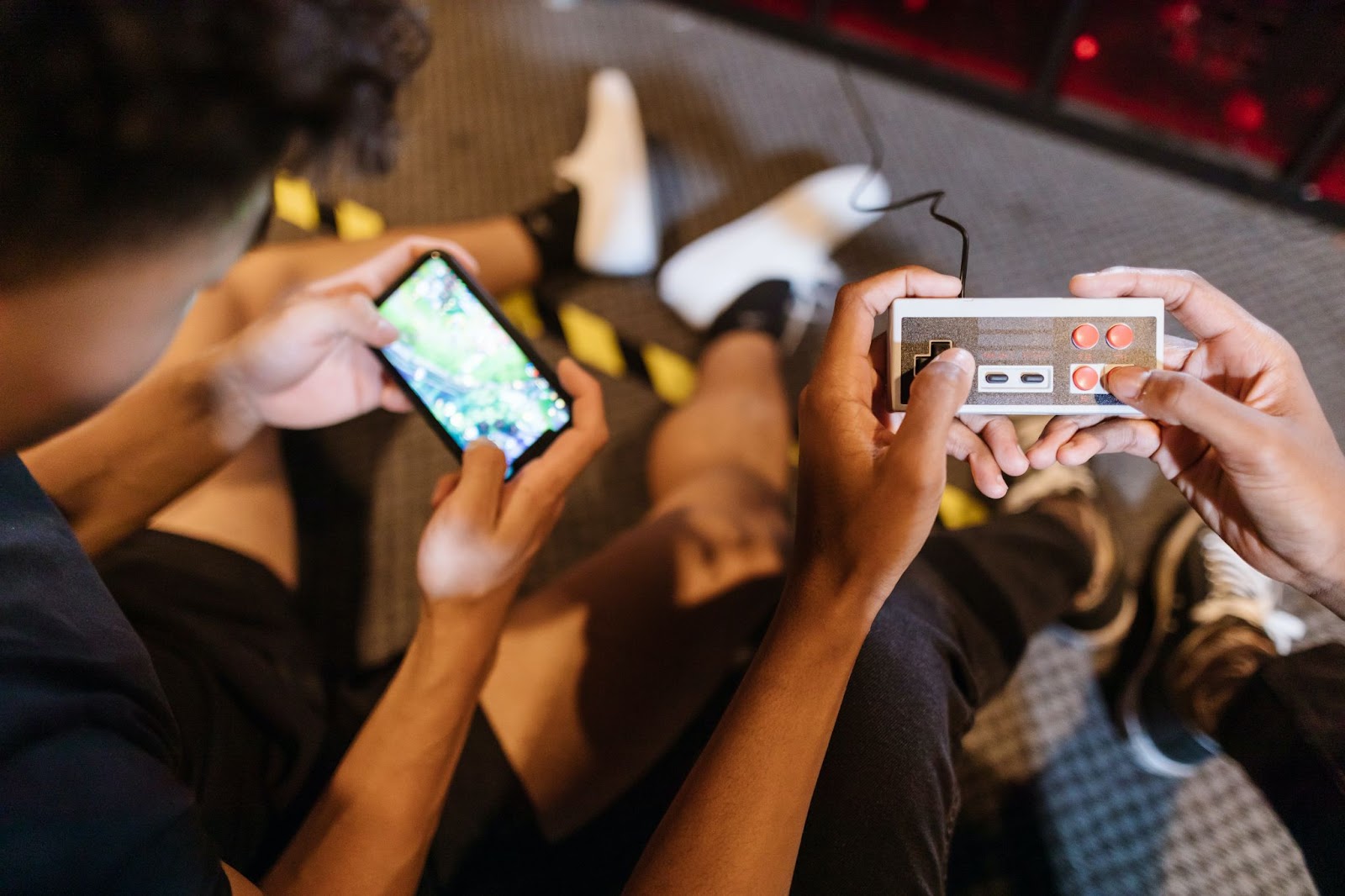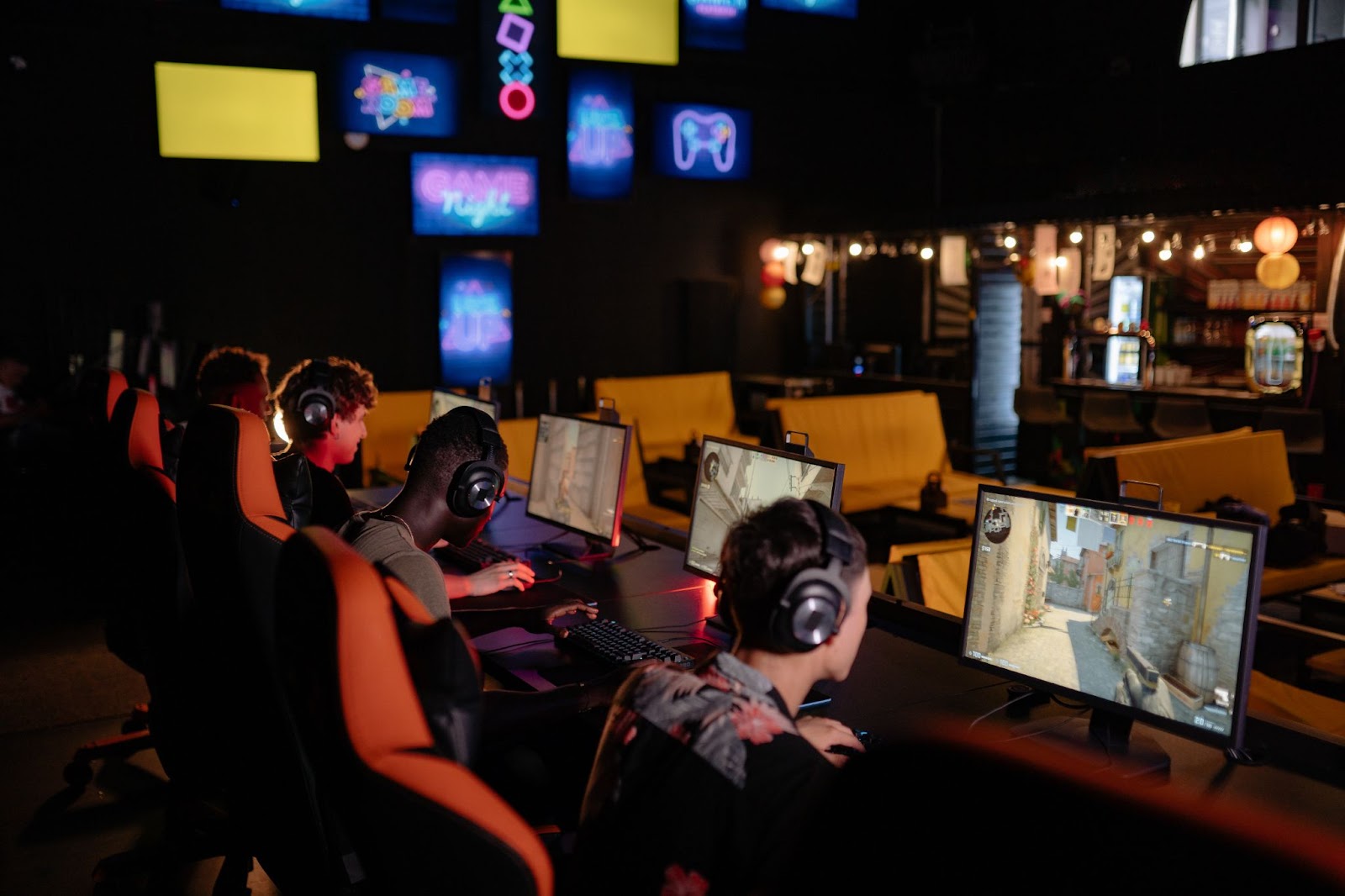
Esports has become a billion dollar industry in the past years, but will it ever become an official part of the Olympics? As esports continue to attract more and more people to its tournaments and competitions, it is natural to ponder if it will ever make it to the Olympics. In this article, we will discuss the challenges that esports will face in order to be accepted into the Olympics.
Will Esports Ever be in The Olympics
Esports, or competitive video gaming, is a rapidly growing industry in which players or teams compete against each other in organized, multiplayer video game competitions. These competitive video tournaments can be played individually or in teams and tend to be structured around specific genres of video games. The games often feature multi-player real-time strategy, first-person shooters (FPS), battle arena (real team versus team play), and sports simulations like FIFA and Madden NFL. Prizes for esports competition usually take the form of monetary awards, trophies, and recognition within the professional gaming community. Esports represent one of the fastest-growing entertainment industries worldwide due to their immense popularity among youngsters. According to a report from Statista, there were 454 million Esports enthusiasts globally in 2019. This figure is projected to reach 646 million by 2023 – highlighting how quickly the popular pastime is growing across the world.
Reasons Why Esports Should be in The Olympics
There is no doubt that the world of esports has grown significantly over the last few decades. From its humble beginnings as a fringe activity on internet forums, it has now become something of an international phenomenon, with millions of people across the world actively participating in competitive gaming and watching streamers, content creators, and professional gamers. This proliferation in popularity has led to calls for esports to be included in the Olympic Games. Although this seems like a far-fetched proposition at first glance, there are many strong arguments why esports should enter the Olympic fold. Firstly, esports could bring a new wave of interest to the Olympics and encourage more people to tune in to watch. This is because unlike traditional sports such as football or basketball, esports can appeal to both traditional sports fans as well as gamers and other young demographics who may not be too interested in physical sport. In addition, esports games are typically much easier for spectators to understand than traditional sports; rather than having complex rules that only seasoned fans can get their heads around (such as cricket or baseball), most games – such as League Of Legends or DOTA 2 – involve fairly easy-to-follow objectives that anyone can comprehend without prior knowledge or experience. Finally, an inclusion of eSports into the Olympics would promote healthy competition among different countries as well as giving recognition for gaming professionals that have trained hard and reached a certain level of success within their field. Thus overall there is enough evidence to show that including esports into the Olympic Games should be strongly considered by officials going forward.
Challenges in Getting Esports into the Olympics
With the increased popularity of esports, there has been a growing demand for it to be included in the Olympic Games. However, there are many problems that need to be addressed before that can become a reality. From the competitive format and game selection, to the lack of international esports regulations, this article will cover the major challenges that need to be overcome for the eventual inclusion of esports in the Olympics.

Lack of Recognition as a Sport
One major factor that has proved to be a challenge to getting esports in the Olympics is the lack of recognition for esports as a sport. Esports has not received the same level of recognition and respect as traditional sports. It is viewed by many skeptics as simply a form of entertainment, rather than an actual sport. This view may limit any opportunities for esports to be included in the Olympics or have the same opportunities as traditional sports. Another factor which has hampered recognition and acceptance is the sheer size and scope of esports. It’s difficult to keep track of all tournaments and match results, which can make it difficult for traditional sports governing bodies to adopt esports into their events due to budget constraints and resource limitations. Esports also includes a large number of genres, each with its own unique rules and regulations. This can make it difficult for traditional governing bodies to recognize it as a unified set of practices or activities that can be adopted into their standards or policies. Finally, while most people recognise virtual gaming competitions as sports, some remain unconvinced by any assertions that it deserves its own place among mainstream athletics disciplines due to its reliance on electronic media such as electric devices, computer hardware and network infrastructure instead of physical factors such as running or swimming speed or muscle strength. Without gaining further recognition from members of international sporting federations, it is highly unlikely that esports will receive consideration for inclusion at Olympic level competition anytime soon.
Difficulty in Regulating Esports
The International Olympic Committee (IOC) is still unsure how to regulate esports due to the rapid evolution of digital technology, the lack of centralized governing bodies, and the presence of gambling and sponsorship. In addition, there is no consensus on how to classify competitive gaming in terms of participant skill level or classification of events. The digital nature of competitive gaming and its wide range of genres further complicates matters. The IOC wants to ensure that esports competitions conform to their ethical standards, must combat cheating and computer hacking, as well as ensure fair treatment for players. Moreover, issues such as doping and gender equality need to be addressed. To appease traditional sports advocates against de-prioritizing physical activity in favor of video games, Olympic committees may redefine athletes’ status or modify traditional sports rules for modern technologies or some combination thereof if esports are included in the Olympics. Also, legal gambling can be a major concern due to esports being a popular unregulated entertainment activity worldwide that could be ripe for exploitation by criminals seeking to capitalize on its exploding popularity and relative lack of established regulations. As part of enforcing ethics codes, authorities would have to confirm that wagers are legal before they take place; this could prove challenging due to varying laws per country. Further, this requires addressing situations where competition grants prizes greater than illegal monetary amounts like cars or homes; it remains difficult for betting operators and game publishers to establish anti-corruption plans similar to traditional sports when a large prize pool is at stake with hundreds of individual gamers competing over multiple days or weeks with insufficient oversight structures.
Lack of Physical Activity
One of the major challenges in getting esports into the Olympics is that there is no substantial physical activity taking place while playing. For many sports, especially those governed by the International Olympic Committee (IOC), physical activity is one of their core values and a requirement for Olympic recognition. Without this requirement in esports, there will be continued debates over whether it should join the Olympic Games program. Another challenge is that some traditional sports as well as members of the IOC feel that esports does not meet their definition of a sport, due to its lack of direct physical activity or health benefits. This further complicates its ability to gain acceptance by members of traditional sporting bodies and governing authorities. Another issue is that some competitive video games are violent and involve themes or images which could be considered offensive or inappropriate for Olympic competition. This has led to considerable debate from both sides regarding what kind of games would be appropriate and how restrictions would need to be enforced. Finally, there exist several different leagues, associations, teams and gaming communities within esports which can make it difficult for any single governing body to organize all aspects behind an esports inclusion in the Olympics. To achieve widespread acceptance by bodies such as the IOC, a unified governance body needs to be created but this can come with difficulties too since some organizations may have conflicting interests and goals outside of an international tournament.
Potential Solutions
The inclusion of esports in the Olympics has been a growing topic of debate in recent years, with passionate opinions on both sides of the argument. Despite all the discussion, however, there have been few proposed solutions on how to get esports into the Olympics. This article will offer potential solutions that could be implemented to make esports an integral part of the Olympic movement.
Increase Recognition of Esports as a Sport
Increasing the recognition of esports as a sport is essential for it to be accepted into the Olympics. This can take multiple forms, from simply raising greater public awareness of esports as a legitimate, competitive activity through to opening dialogues with governing bodies and relevant organisations. Improved infrastructure and regulation can also ensure that standards of competition remain high, adding further evidence to esports’ case for Olympic inclusion. Education and training initiatives could also increase recognition of esports as an established sport by providing better support for both players and spectators. Workshops and training sessions dedicated to forming teams, streaming events, or entering tournaments gives aspiring players the chance to develop their skills in a supported environment. Increased engagement across key stakeholders (players, industry experts, spectators etc.) provides a platform on which further campaigns can be built in pursuit of Olympic acceptance. Other suggestions include actively engaging fans with existing offline events in order to grow interest in major online tournaments. Expanding the current level of professional broadcasting would also promote Esports worldwide while helping secure commercially beneficial sponsorships. While this type of non-traditional approach may be difficult at first, it should prove beneficial in time if used correctly. Moreover it will set Esports apart from traditional sports – increasing both its popularity and its feasibility for inclusion into the Olympics program.

Create a Regulatory Body For Esports
Creating a regulatory body is one of the most viable solutions for esports to be accepted into the Olympics. It would provide the necessary rules and regulations that would govern how esports competitions are run, focusing on safety, fairness, anti-doping and all other matters that are also outlined in sport regulations. The rules would be tailored to fit each particular game but other particulars, such as expected player behaviour and technical aspects of tournaments, could easily be adapted from existing sports bodies. The formation of a governing body can also provide legitimacy to the esports industry by providing assurance that all tournaments have met properly set standards. In addition, it may encourage sponsorships as they seek out events which have been approved by the governing body. Furthermore, it could create a platform to help unite the disparate international gaming communities and provide more visibility across multiple games and markets. This governing body should ideally involve developers or manufacturers of popular titles as well as representatives from various regional leagues in order to better reflect the globalised nature of Esports today. Establishing such a regulatory body requires considerable coordination between all parties involved but its ultimate aim should be to create an environment which welcomes both professional players and casual competitors alike through fair play whilst protecting them from any form of cheating or exploitation by third parties. With appropriate mechanisms in place, this experiment could open up great opportunities for esports in the future including potentially being recognised for inclusion at the Olympic level.
Promote Physical Activity in Esports
One potential solution to the challenge of getting esports into the Olympics is to promote physical activity in esports. By emphasizing physical activity, the International Olympic Committee (IOC) can ensure that gamers can still compete while staying healthy and fit.
This could be achieved by adding rules and regulations that require competitors to stay active while playing. For example, they can set limits on how long gamers can play each day or add a requirement for participants to do some kind of exercise before competing. This will not only help change the perception of esports but also highlight its health benefits. Additionally, this could be a way for IOC to measure the effort put in by participants and promote physical fitness more within the gaming community.
Conclusion
The gaming industry has come a long way and has grown to become one of the largest industries in the world. While esports is still growing and popularizing, the question of whether or not it will ever make its way into the Olympics has been highly debated. In this article, we will look at the potential challenges that could prevent esports from being included in the Olympics and draw a conclusion based on that.




